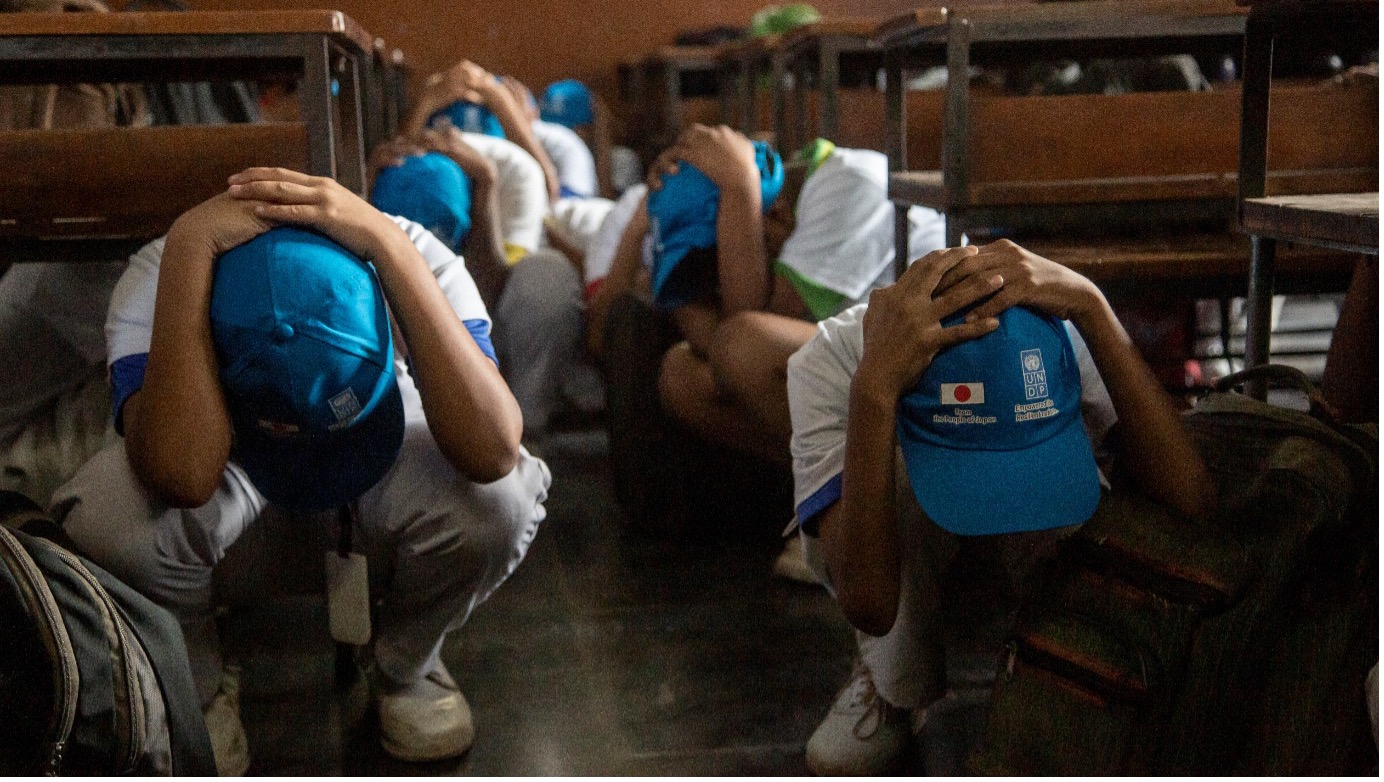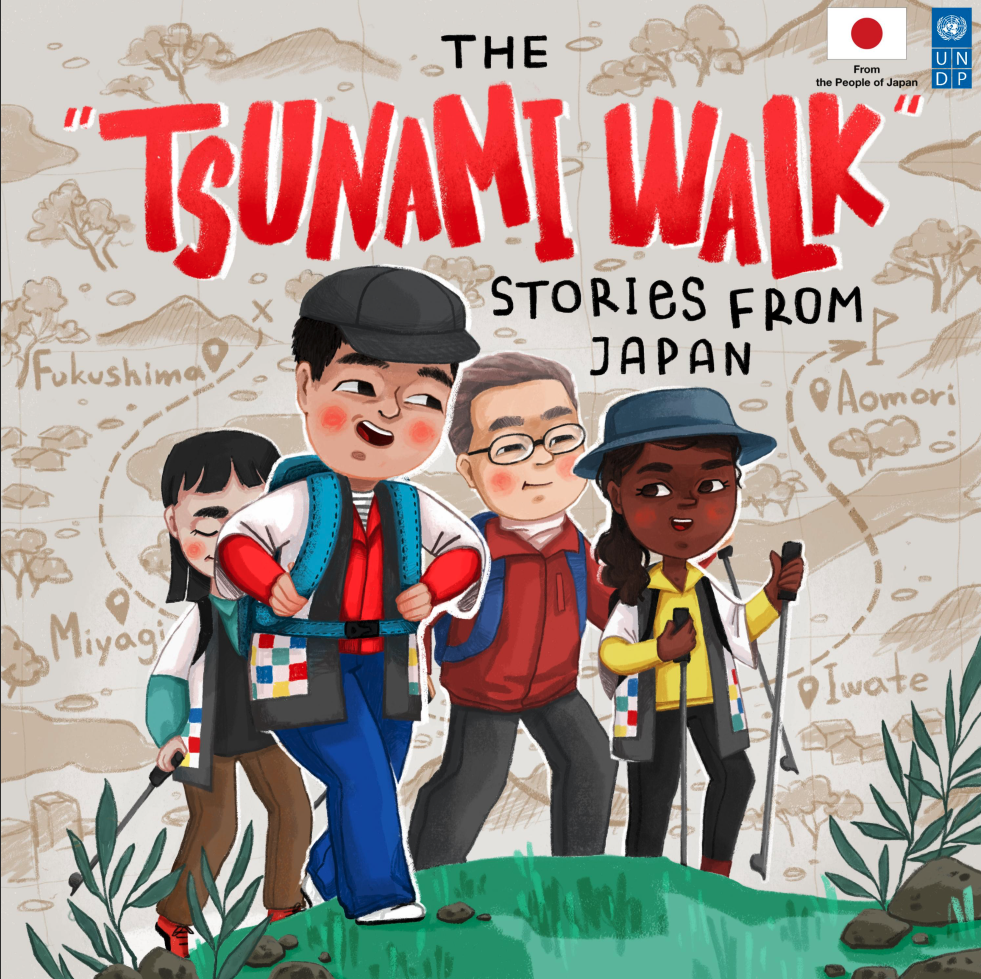Yuichi Ono, Deputy Director and Professor, IRIDeS at Tohoku University
Countries across Asia-Pacific continue to benefit from the lessons learned from the Great East Japan Earthquake and Tsunami. Here’s how.
March 7, 2024

Sudents duck, cover and hold during a tsunami drill in India.
This year marks the 13th anniversary of the Great East Japan Earthquake and Tsunami, the disaster that cost so many people their lives. Two years ago, I organised the World Bosai Walk, an 800 km journey from Iwaki in Fukushima Prefecture to Hachinohe in Aomori Prefecture in 40 days to commemorate the Great East Japan Earthquake and Tsunami (bosai means disaster risk reduction in Japanese). During the Walk, I witnessed first-hand the recovery efforts and heard from survivors who lost everything – their homes, their loved ones, their sense of normalcy. Their stories were heart-breaking and inspiring. In the middle of their grief, they found the strength to carry on, often by caring for others. For example, I met a 70-year-old grandmother who had lost her daughter. She had contemplated suicide, but found renewed purpose in caring for her surviving 4-year-old grandchild. Meeting the survivors and hearing their stories left a strong impression on me. The lessons continue to be pertinent: on New Year's Day of this year, the Noto Peninsula earthquake triggered a tsunami, issuing a major tsunami warning in Japan for the first time in 13 years.

Yuichi Ono, a Japanese professor, walked for 40 days on the coastline of Japan with his friends to hear stories from people impacted by the 2011 Tohoku earthquake and tsunami. After walking 800km, “one thing was clear: preparation saved many lives”.
In the previous phases, we primarily focused on conducting tsunami drills in selected schools and communities. However, we realised that to truly make a difference, we needed to broaden our reach. Therefore, this year, we will help countries in the Asia-Pacific region to integrate tsunami preparedness into national policies, in order to ensure that all schools and communities are empowered to reduce their risks and increase their safety in the event of a tsunami.
We will also develop a regional strategy for tsunami early warnings to help ensure that every person in the region can be protected by a tsunami early warning system. Our regional strategy for tsunami early warnings will support the achievement of the global “Early Warnings for All (EW4All)” initiative that was announced by UN Secretary-General, António Guterres, in March 2022.
The devastating 2004 Indian Ocean Tsunami affected many countries in the region. This year marks the 20th anniversary of the Indian Ocean Tsunami, and the anniversary (which will take place on 26th December 2024) will serve as a stark reminder of both the destruction tsunamis can cause and the importance of public tsunami awareness and preparedness. Although there were meaningful improvements in tsunami preparedness in the region in the aftermath of the Indian Ocean Tsunami, the danger of tsunamis has received insufficient focus and urgency in recent years. Together with the Association of Southeast Asian Nations (ASEAN), we will leverage the 20th anniversary to reignite attention and public awareness on tsunami preparedness as a means of effectively responding to and mitigating the impacts of future tsunamis.
In this journey, UNDP will continue to work closely with the world-renowned tsunami experts at the International Research Institute of Disaster Science (IRIDeS) at Tohoku University. Through our collective efforts, we hope to truly enhance tsunami awareness and preparedness in the Asia-Pacific region.
Sooin Bang, Project Manager for the 4th Phase of the Tsunami Project, UNDP Bangkok Regional Hub, contributed to this blog.

 Locations
Locations



